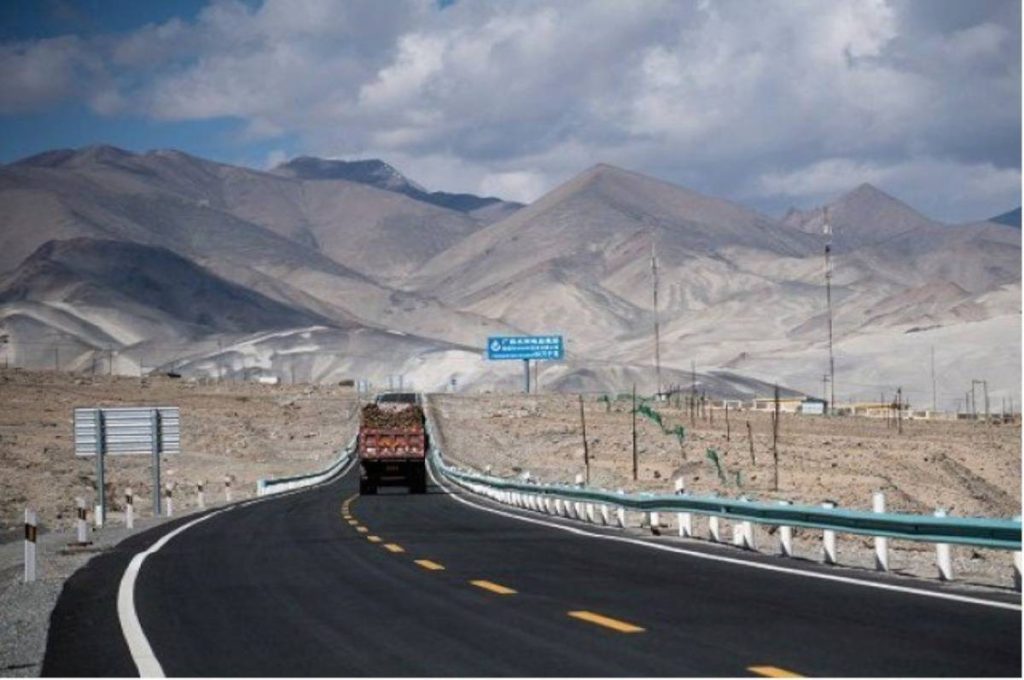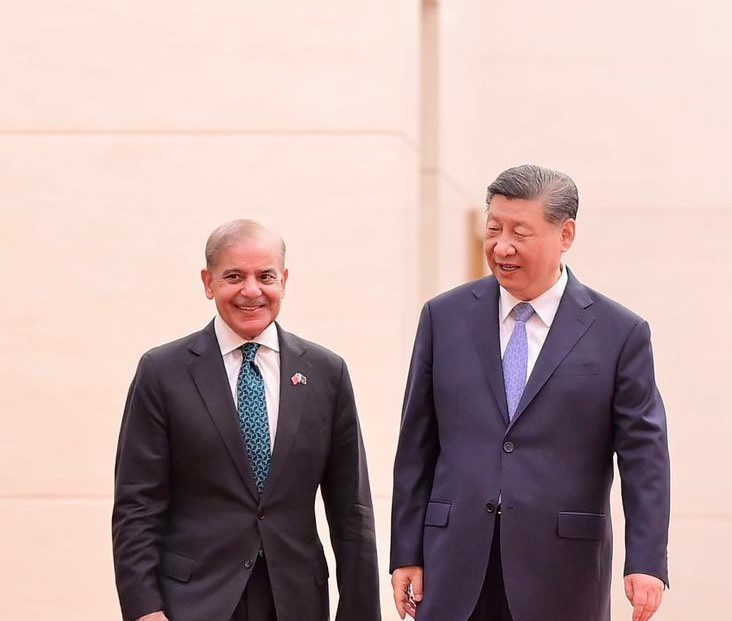Pakistan PM Shehbaz Sharif is likely to see the inauguration of China-Pakistan Economic Corridor’s second phase….reports Asian Lite News
Pakistan Prime Minister Shehbaz Sharif and Chinese President Xi Jinping reaffirmed their consensus on the China-Pakistan Economic Corridor’s (CPEC) high-quality development and the timely completion of major ongoing projects in a meeting, reported Dawn.
This comes at a time when the Pakistan PM and his delegation are on a five-day visit to China, marking Shehbaz Sharif’s first visit to China following the February 8 general elections.
The two leaders also affirmed their consensus on CPEC’s upgradation and advancing the mega project’s development in its second phase, according to Dawn.
Pakistan PM Shehbaz Sharif is likely to see the inauguration of CPEC’s second phase.
The trip, however, has led to a delay in the annual federal budget usually presented in the first week of June and is now expected to be presented on June 12, according to the government’s tentative plan.
The Pakistan prime minister briefed Chinese President Xi on Pakistan’s policies for economic reforms, sustained growth, industrial development, agricultural modernisation, regional connectivity and the critical role played by CPEC in the country’s development.
He asserted Pakistan’s commitment to CPEC’s high-quality development and to fostering synergy between the development strategies of the two countries through close coordination, reported Dawn.
Notably, this was the first meeting of PM Shehbaz with President Xi since assuming office.

The meeting was marked by “traditional warmth reflective of the ironclad friendship and close strategic ties between the two countries”, according to a statement from the Prime Minister’s Office.
The Pakistan PM commended President Xi’s Belt and Road Initiative (BRI) and Global Development Initiative, and further underscored that as the flagship project of BRI, CPEC had significantly contributed to Pakistan’s socio-economic development.
Meanwhile, the Chinese leader also called on Shehbaz Sharif to step up efforts to ensure the security of Chinese projects in Pakistan, Dawn reported.
While the first phase of CPEC largely focussed on infrastructure and energy projects, Pakistan is seeking to broaden the focus of CPEC-II to agriculture, industry (business-to-business), information technology and science.
Besides, Pakistan is also pushing for agreements on the construction of USD 6.7 Billion Main Line-I (ML-I) of Pakistan Railways, which is a 1733km railway line from Karachi to Peshawar, along with the realignment of Karakoram Highway, among other projects.
Additionally, the recent ministerial visits endeavoured to convince Chinese investors to commit to cross-sectoral investments in various domains of Pakistan’s economy such as tourism and startups.
These are seen as necessary to diversify their bilateral economic engagements which could provide Pakistan with a much-needed infusion of fresh capital to alleviate its distressed economy and reverse its declining trends.
However, what has headlined Shehbaz Sharif’s visit to China are Beijing’s preconditions, demanding Islamabad’s express commitment to launching a second Zarb-e-Azb military campaign against militant groups like Tehreek-e-Taliban Pakistan (TTP), Islamic State-Khorasan (IS-K), and various Baloch armed groups. These groups have increasingly targeted Chinese-linked facilities in Pakistan.
According to a now-removed report in Business Recorder, Chinese government officials asked the Pakistan government to take definitive action against these militant groups and “crush them once and for all.”
It is worth recalling that Pakistan’s military launched Operation Zarb-e-Azb in 2014 against its former allies-turned-foes, including various TTP factions, Lashkar-e-Jhangvi, and Jundullah, among others, in response to a significant surge in terror violence that claimed the lives of thousands of civilians and hundreds of security forces personnel across the country’s tribal areas during the 2011-2014 period.
Beijing’s demand comes amidst an unprecedented surge in the terror attacks on Chinese-linked infrastructure projects over the last few years, which have killed dozens of Chinese nationals.
The continued rise in such attacks has raised concern in Beijing about the Pakistan government’s ability to secure its nationals and the durability of its investments and projects in the country.
For instance, Pakistan witnessed nearly 250 terror attacks in the first quarter of 2024, including three major attacks targeting Chinese interests between March 16 and March 26, which left five Chinese nationals dead.
In the first attack, Baloch militants struck the Gwadar Port Authority complex in Gwadar, Balochistan, on March 20. The port, built with Chinese funds, is the flagship component of the USD 65 billion CPEC under BRI.
This was followed by an attack on the Pakistan Naval Station (PNS) base at Turbat by Baloch militants on March 25, protesting China’s continued presence in the province.
In the third attack, on March 26, a suicide bomber from Tehreek-e-Taliban Pakistan (TTP) targeted a convoy of Chinese workers, who were working on a Chinese-funded hydropower project in Besham, Khyber-Pakhtunkhwa province, killing five engineers and their Pakistani driver.
Following these incidents, Beijing reprimanded the Pakistani government for its inability to ensure the security of Chinese nationals and facilities. A statement from China’s Ministry of Foreign Affairs on March 27 asked Islamabad “to thoroughly investigate the incident as soon as possible, hunt down the perpetrators and bring them to justice.” (with inputs from agencies)
ALSO READ: Pakistan issues 962 visas to Sikh pilgrims from India

Leave a Reply